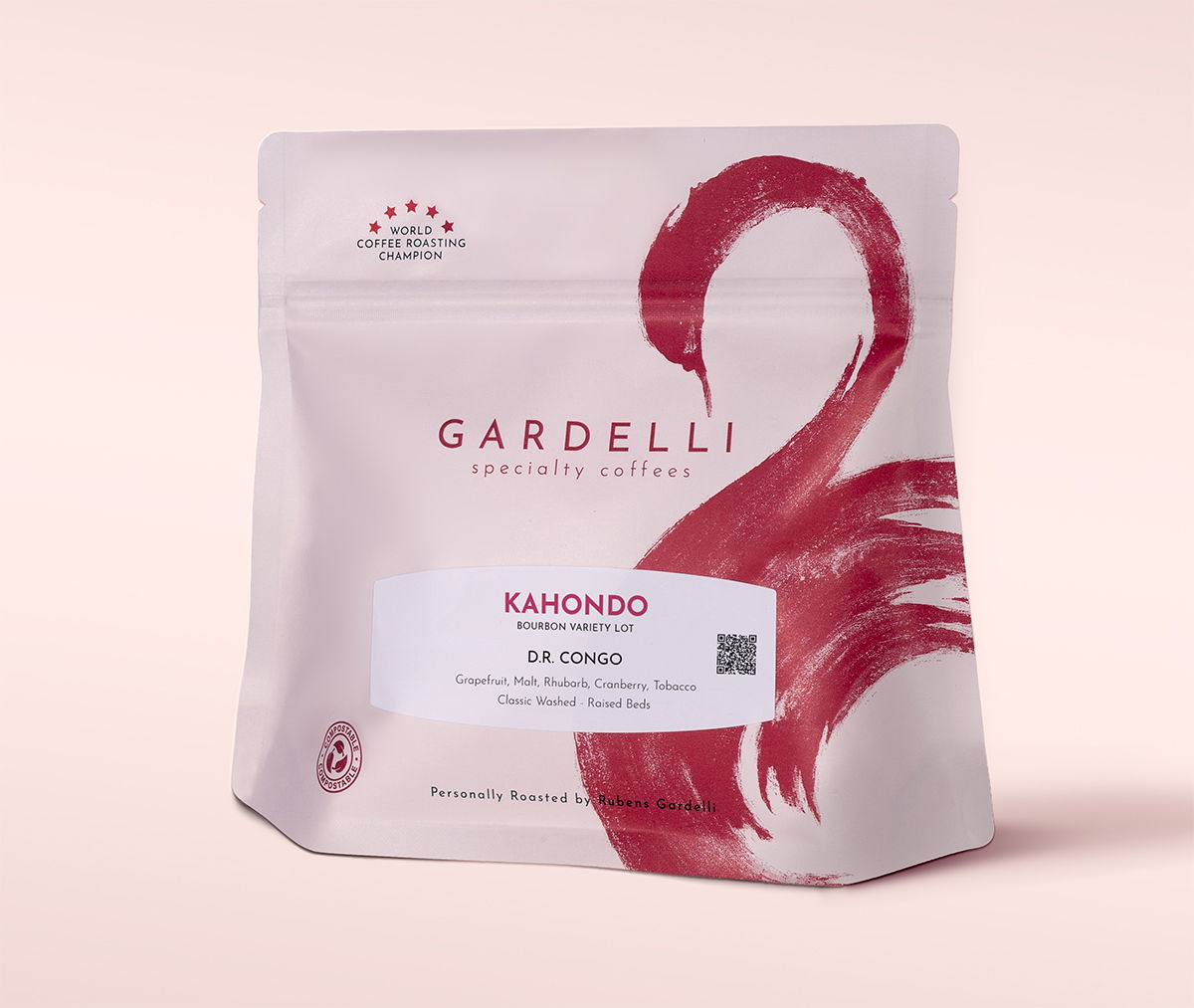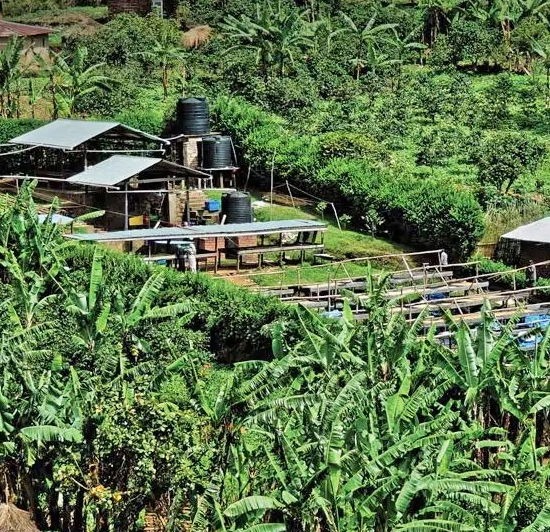








D.R. Congo
Cup Notes: Grapefruit, Malt, Rhubarb, Cranberry, Tobacco
Dive into a sensory journey: Kahondo enchants with fresh notes of grapefruit and cranberry, a rich body, and a finish that warms the soul.
Suggested for espresso and filter
when we roast
We freshly roast to order all coffees on Monday, Wednesday and Friday (excluding national holidays), and ship the same day! Cut-off time is 11:59pm (UTC+1) of the day before the roast day. *We only ship whole beans*
Kahondo Coffee Washing Station is one of nine stations run by Virunga Coffee Company, established in 2012 to produce top-quality coffees for the specialty market and improve the situation of thousands of smallholder farmers in the region. Virunga focuses on increasing production through good agronomic practices, enhancing coffee quality with education and strict processing standards, and obtaining internationally recognized certifications to secure better premiums for farmers.
To date, Virunga has trained over 11,000 farmers in Good Agricultural Practices and helped them achieve Organic and Rainforest Alliance certifications. With a team of 40 field officers, who are trained agronomists, working on the ground, the company also distributes over 3 million seedlings annually to farmers in Eastern D.R. Congo.

Bourbon is one of the most culturally and genetically significant arabica varieties of the world, celebrated for its exceptional cup quality at high altitudes. Along with Typica, it is one of the two main cultivars, from which many modern varieties are derived. Historical records suggest that Bourbon originated in the coffee forests of Southwestern Ethiopia and was later cultivated in Yemen. Recent genetic studies have confirmed this origin.
Bourbon was first grown on Réunion, known as Bourbon Island before 1789, and was later introduced by the French to mainland Africa and Latin America. It thrives at altitudes between 1,100 and 2,000 masl, offering yields that are 20–30% higher than Typica. While it has a commercially viable yield and growth potential, it is generally vulnerable to diseases and pests.

Ripe cherries are brought to the wet mill, where they undergo careful sorting and pulping before being fermented for 18 to 24 hours, depending on the weather conditions. Once the mucilage is sufficiently broken down, the parchment coffee is thoroughly washed in clean water channels and graded by bean density. It is then dried under the sun on raised African beds for 12 to 18 days, depending on the climate, until it reaches the ideal moisture level.
During the day, the parchment is raked and turned regularly to ensure even drying and to prevent mold or over-fermentation. The cherries are covered for protection during the hottest part of the day and at night to shield it from rain and moisture. Once the coffee has dried to the perfect level, it is transported to Butembo for dry milling, grading, sorting, and handpicking, before being packed in GrainPro bags for export.
